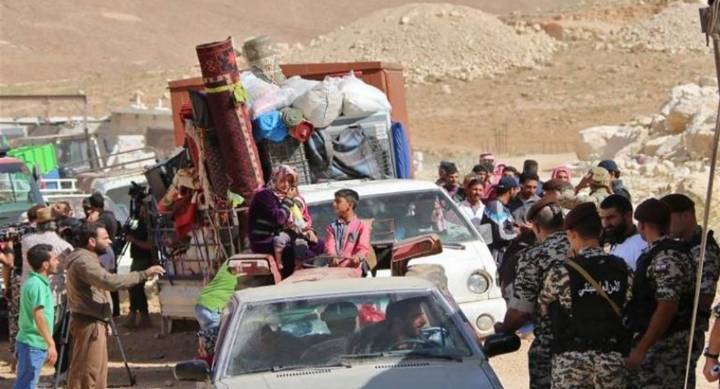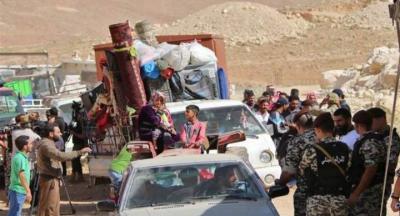The horizon appears blocked for the return of Syrian displaced persons to their country in the foreseeable future. Today, President Michel Aoun received Foreign Affairs and Emigrants Minister Abdullah Bou Habib and Minister of Social Affairs Hector Hajjar, discussing developments related to the issue. After the meeting, Hajjar stated, "We agreed with President Aoun on several points concerning the plan for the return of Syrian displaced persons to their homeland, and communication with Syria is ongoing and has never ceased." However, in recent hours, Minister Bou Habib stated that "their country will not ask them to return." He questioned, "Do countries ask their citizens to return when they contribute to the economy with hard currency? These individuals send money back to their country. This is what Syrian displaced persons in Jordan, Turkey, and Lebanon do. These Syrian refugees do not leave their families alone in Syria; they also send money to them. Therefore, their presence abroad supports the regime."
In addition to this negative Syrian factor, there is a lack of international enthusiasm or willingness to facilitate this return, coupled with an insistence on assisting them "where they are." While Riyadh, for example, persistently sends aid to the displaced in their locations in Lebanon, its ambassador Walid Bukhari recently announced, during the inauguration of a food security project in Lebanon presented by the King Salman Relief and Humanitarian Aid Center, the distribution of 20,000 loaves of bread daily to needy Syrian and Palestinian families. General Security Director Major General Abbas Ibrahim observed that Lebanon is not present at the table of regional and international meetings except as a new homeland for refugees and displaced persons, adding, "There is no intention on the part of the international community to return Syrian displaced persons to their country, and there are major countries that obstruct their return with various excuses."
However, what is striking amidst this data confirming that a return will not happen soon, according to diplomatic sources for "Al-Markazia," is the contradiction in the Lebanese state's position on the issue. While Bou Habib believes that Syria is not conducive to the return of the displaced, Major General Ibrahim indicated that "we presented an offer to ensure the safe return of the displaced after we received guarantees from the Syrian leadership, but it was rejected internationally." This statement raises questions about the level of coordination among the authorities regarding an issue of this magnitude. Is it sufficient to solve and address the matter, given that on one side, some say that Syria has agreed to their return and the outside rejected it, while on the other side, some say that Damascus does not want to return the displaced at all? This disparity confirms that communication is not occurring as it should among those officially responsible for displacement, and this lack of coordination, coupled with the aforementioned factors, makes achieving a return even more difficult, the sources conclude.




